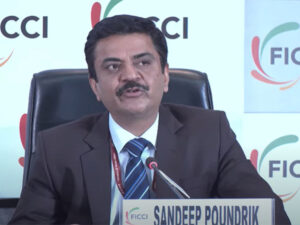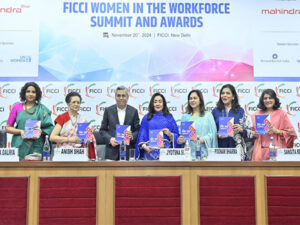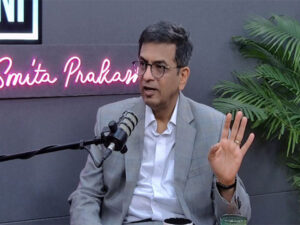
New Delhi [India], May 3 (ANI): The seed industry in India is undergoing a significant transformation, propelled by innovation and technology. In a bid to sustain this momentum and achieve the “viksit” tag by 2047, experts emphasize the need for a robust Intellectual Property Rights (IPR) environment.
According to a press release, addressing a national conference on the ‘Innovate, Protect, Prosper: Role of Intellectual Property Protection in taking India’s Seed Sector to the Next Level,’ organized by the Federation of Seed Industry of India (FSII), noted Indian experts highlighted the pivotal role of IPR in fostering growth in the seed industry.
The experts underscored the challenges hindering the effective utilization of intellectual property to drive innovation and competitiveness in the seed and biotechnology sectors.
These challenges include ensuring fair access to genetic resources, strengthening mechanisms for IP protection and enforcement, facilitating technology transfer and licensing agreements, navigating complex regulatory frameworks, and building capacity and awareness among stakeholders.
Dr Raj S Paroda, Founder Chairman of the Trust of Advancement of Agricultural Sciences (TAAS), stressed, “Effective IPR protection incentivizes investment in developing new seed varieties and agricultural technologies. When innovators are confident their creations are protected, they’re more likely to dedicate resources to groundbreaking solutions, ultimately benefiting farmers and consumers alike investment in research and development of new seed varieties and agricultural biotechnologies. A robust IPR framework will safeguard the interest of the researchers, seed industry and farmers.”
Ajai Rana, Chairman of FSII and Managing Director & CEO of Savannah Seeds, highlighted IPR-related challenges for the seed industry, including unauthorized use of genetic resources and weak enforcement of IPR laws.
Rana said, “In wake of the issues that we face such as unauthorized use of genetic resources, weak enforcement of IPR laws, conflict between IPR and farmers’ rights, there is a need for a multi-faceted approach. This involves legal reforms, capacity building, stakeholder engagement, and international cooperation to promote innovation, sustainability, and equitable access to genetic resources and agricultural technologies.”
He advocated for a multi-faceted approach involving legal reforms, capacity building, stakeholder engagement, and international cooperation to promote innovation, sustainability, and equitable access to genetic resources and agricultural technologies.
Rana also emphasized the need for collaboration between the public and private sectors to enhance research and development efforts, promote technology transfer, and address challenges related to IPR protection and enforcement.
Drawing from international experiences, Dr. Trilochan Mohapatra, Chairperson of the Protection of Plant Varieties and Farmers’ Rights Authority (PPVFRA), highlighted the importance of maintaining a balanced stance on intellectual property rights.
He suggested that India can adopt measures such as compulsory licensing, benefit-sharing agreements, and exemptions for farmers’ rights to achieve this balance effectively.
Mohapatra said, “Several international best practices in IPR for the seed industry and agricultural biotechnology can offer valuable lessons for the Indian industry. Successful IPR regimes strike a balance between promoting innovation and ensuring access to essential agricultural technologies and genetic resources.”
He added, “India can adopt measures such as compulsory licensing, benefit-sharing agreements, and exemptions for farmers’ rights to achieve this balance effectively.”
Promoting technology transfer and facilitating licensing agreements were also emphasized as critical strategies to expedite the uptake of innovative agricultural technologies and seed varieties.
Indian companies were encouraged to learn from international practices in negotiating fair and equitable licensing terms, promoting collaborative research, and fostering technology dissemination.
Experts have called for a review of India’s legal structure regulating IPR, notably through the Patents Act of 1970 and the Protection of Plant Varieties and Farmers’ Rights Act (PVPFRA) of 2001, to ensure they effectively address the evolving needs of the seed and biotechnology sectors.
By leveraging global best practices and insights, India has the opportunity to craft a nuanced strategy on intellectual property that nurtures innovation, encourages technology transfer, and addresses distinctive sectoral challenges. (ANI)



















